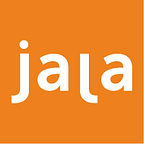4 Reasons NGOs Should Take Advantage of Online Translation Services
Many non-governmental organisations (NGOs) start off as initiatives by a few individuals who want to create change in their local community.
However, as a movement grows, it is not uncommon for organisations to find the need or opportunity to expand beyond local grounds.
When it is time to reach international audiences, it may no longer be sufficient to use just one language to convey your organisation’s values and objectives.
This is where translation becomes crucial.
Translating texts from one language to another may seem like an intimidating task. Fortunately, there is no shortage of translation platforms online today that can help you accomplish your goal.
Let’s take a look at some of the benefits of using online services to translate your non-profit’s message:
1. Reach a broader audience.
As most NGOs raise awareness of pressing issues by education, there’s no underestimating the power of having the message presented in more than one language. The more languages your information is presented in, the broader the demographics you can reach to support your cause.
A message is only as good as its ability to be understood by its audience, and this can only happen if the audience knows the language used. No matter how relevant your NGO’s cause is to a community, if the person encountering your website or brochure doesn’t understand your organisation’s primary language, he or she will not benefit from your information or be moved to take action or contribute to your cause.
Even if they understand your website or organisation’s primary language, a 2011 survey conducted by The Gallup Organization shows that people are more likely to trust and respond to information in their native language.
According to the survey, 90% of Internet users, when given a choice of language, will always visit a website in their own language. This means that if a native Spanish speaker is looking for information about beautifying cities through street art, and your website is the only one out of three similar NGOs to have translated your site’s information from English into Spanish, you would have outdone the others in capturing the person’s attention.
2. Up your professional game.
Being a non-profit is no excuse to slack in the area of professionalism. Having your message presented in a cohesive and polished manner reflects your commitment to raising awareness and activating change, which gives people the permission to trust your NGO.
A professionally translated text should read like an original work. A poor translation would feel awkward to read, thus driving potential beneficiaries and contributors away from your organisation.
3. Retain the nuances of your original text.
You may argue that the increasing availability of free and professional translation software out there means that you don’t even need an actual human to do the translating for you.
So why not just use translation software? Because when you rely on a program to do the work for you, linguistic and cultural nuances tend to get lost in translation.
Translation done by qualified and certified humans who can take cultural contexts into account will ultimately result in a more professional-looking copy. In turn, this increases the information’s ability to resonate with your target audience and propel them into action, whether by contributing monetarily or through time.
In addition, sensitivity to cultural differences is especially crucial when translating information of topics that cannot be taken lightly, which is often the case for NGOs and their causes.
This is not to say that translation software does not have its merits. With technology perpetually advancing, machines are getting better at translating and can often do the job faster than humans, which comes in handy when urgency is a factor.
As accuracy remains a concern, the best way to utilise machine translation is to have a human translator look through the final work to ensure that no translation has been done out of context. By offering machine and human translation, platforms such as Jala aims to leverage the speed of machine and sensibility of human translation.
4. Grow your organisation without busting the budget.
Balancing a limited budget is a constant worry for most NGOS. But we’ve got good news for you: getting your website and other material professionally translated does not have to take up half of your quarterly budget.
Instead of having to hire a full-time translator, you can utilise freelancers and online services as needed — which reduces operational costs and allows you flexibility. Many online translation platforms also offer you the liberty to negotiate the rates. As an NGO, you may find translators who are personally passionate about your mission and are willing to charge you a reasonable fee for translation work.
Whether it is an NGO fighting against domestic violence or championing tiger conservation, conveying an impactful message can make a difference between advancing your organisation’s mission and failing to capture any positive attention.
Getting your information professionally translated may take time and money as well as be an inconvenience in the beginning, but the extra effort will pay off by giving your organisation a more global reach and amplifying its impact on society.
Having your NGO’s information translated into different languages doesn’t have to be a next-to-impossible feat. With the availability of many translation websites such as Jala, NGOs can easily connect with freelance translators to achieve growth.
Written by Amanda Soo
